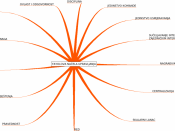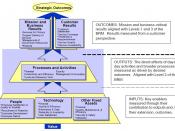Henri Fayol was born in 1841 and died in 1925. After 30 years of an eminently successful career as a practitioner, Fayol devoted the remainder of his life, from 1918 to 1925, to promoting his theory of administration. Fayol was perhaps the first to note the need for management education. His Administration Industrielle et Generale was published in French in 1916. Fayol argued that all industrial undertakings precipitate activities that can be categorised into six groups: technical, commercial, financial, security, accounting and management. Fayol's work focused on the latter category, management. The Fayol model is relevant and appropriate to contemporary management.**
Early last century, for industrially-- developing economies, Fayol offered 14 principles of management aimed to help managers ascertain what to do to manage more effectively. Currently, service-based and high-tech industries are becoming dominant in some economies, such as the United States. Many organizations in these industries interpret the principles quite differently from the way they were interpreted in Fayol's time.
The differences and the cultural challenges managers face in implementing this new framework are presented. (Rodrigues:1) In this essay I will discussion some of Fayol's principles and asses whether they are relevant in today's business world.
Principle 1. Division of work
Then
This principle proposes that work can be performed more efficiently and more productively if it is divided into smaller elements and assigning specific elements to specific workers. Thus, the dominant thought in designing jobs then was specialization, each employee performing a specific task, as opposed to generalization, each employee performing multiple tasks. It should be noted, however, that Fayol pointed out that division of work has limitations which should not be exceeded.*
In todays work place we have a system called multi-skilling. This is where employees are skilled at one or two tasks but have the...


